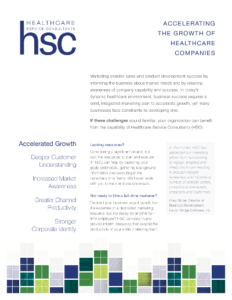
Creating compelling content for your marketing strategy often feels like a balancing act. Founders and leaders of healthcare IT companies are often confused about when to leverage a compelling customer success story and the broader educational approach of white papers.
Understanding the differences between these two types of content and recognizing their unique benefits is essential for guiding potential customers through the sales funnel. In this blog, we explore the key differences between these two types of content. We also discuss why you need both in your marketing toolkit.
White Paper vs. Customer Case Study
White papers and case studies each serve a different purpose and target different stages of the customer sales journey. Understanding their differences and knowing when and how to use them can enhance your marketing efforts and drive sales.
White papers focus on thought leadership. They represent in-depth explorations of a problem, its implications, and potential solutions. White papers educate your target market and create awareness of a problem impacting them. They are often supported by research and data and provide a comprehensive overview that positions your company as a thought leader on the topic.
Alternatively, customer case studies are real-world narratives that showcase how your product or service has successfully solved a client’s problem. These stories should highlight the success your customer has realized by using your product. They should provide specific examples; ones complete with testimonials and actual quantifiable results that show the tangible benefits provided by your solutions.
Different Benefits, Different Approaches
Both types of documents are valuable marketing assets. Each is a unique type of content that distinctly benefits your sales efforts. Thus, each calls for a distinct approach.
White Papers
- Purpose: White papers are top-of-the-funnel assets designed to create awareness about specific problems. They educate your audience on the broader implications and potential solutions.
- Content: White papers should be fact-based, comprehensive, and non-promotional when discussing the problem, its impact, and the potential ways to solve it. Including customer examples is acceptable. But, the primary focus should be educating the reader.
- Length and Structure: Typically, white papers are long pieces of content (1,500-2,000 words). They delve deeply into the topic at-hand, including relevant supporting data, research findings, and statistics. Specific company products should be masked.
- Creation: White papers are typically developed internally, using your team’s clinical and technical expertise. They should address one problem or functional area at a time. Often, they focus on specific angles to a problem (e.g. clinical, operational, or technical) but may tackle all three if appropriate.
Case Studies
- Purpose: Case studies are middle-of-the-funnel assets that provide proof points. They bring the theoretical aspects of white papers to life with concrete examples.
- Content: Case studies should highlight real customer experiences, benefits, and testimonials. Each case study should follow a structured flow—problem, impact, solution implemented, and benefits realized.
- Length and Structure: Case studies are shorter and more focused, around 500-1,000 words. They are more promotional, naming the company and product and showcasing real-world results.
- Creation: The best case studies work in collaboration with the customer to reflect diverse personas and use cases. They should prove how your solution addressed real and specific customer problems and be about their success (not yours).
Role in Funnel Development and Management
Effective funnel development and management relies on utilizing different types of content to guide potential customers through their buying journey. White papers and case studies both play an important role in this process—but at different stages of the sales funnel.
White papers are critical top-of-funnel assets that create awareness of problems impacting your target market. They should also educate prospects about the problem they face and help them visualize the value of a solution like yours. White papers establish thought leadership. This builds awareness of your company’s expertise and solutions by presenting comprehensive, fact-based information.
Case studies are essential for moving prospects through the sales funnel once they consider that your company might have a solution to their problem. They provide tangible proof of your solution’s effectiveness by showcasing real-world examples of how your products have helped your customers. They should confirm claims made in white papers and other sales literature and help prospects see how your product will benefit them.
Which Comes First?
White papers are excellent early lead generation tools because they raise awareness of market problems and suggest potential solutions. They play a crucial role in laying the groundwork for sales by educating your target audience about a problem area and articulating your vision for solving it.
Once you have stable implementations, and established customer relationships, case study development should begin in ernest. Case studies should be developed on an ongoing basis as every customer scenario is different. Case studies act as a follow-up support to white papers by providing concrete, proof points of your solutions in action, demonstrating their effectiveness and providing real-world impact.
Why You Need Both
Having both white papers and case studies in your marketing arsenal is crucial. Each is valuable in different stages of the sales funnel and each provides varying types of information to the buyer. White papers demonstrate your understanding of a problem, its impact, and how to solve it. Case studies add credibility by showing you can solve it. Together with other sales collateral, they form a complete sales and marketing strategy—driving prospects through the funnel and enhancing your digital marketing efforts.
Are you ready to enhance your marketing strategy with powerful white papers and compelling case studies? Our healthcare IT product marketing experts can help you develop a framework that ensures cohesive, relevant, and effective content. We can help guide your potential customers from awareness to purchase. Contact us to learn more.




